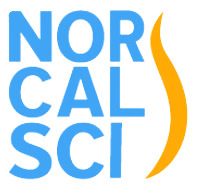Staying Active with SCI: Preventing and Managing Diabetes Through Adaptive Sports
What if the key to outrunning diabetes after a spinal cord injury was as simple as rolling forward? Individuals living with a spinal cord injury face a significantly higher risk of developing type 2 diabetes—often two to three times greater than the general population—due to reduced mobility, altered metabolism, and changes in body composition.
Regular physical activity serves as a powerful tool to manage this risk by improving insulin sensitivity, supporting healthy weight, enhancing cardiovascular health, and promoting emotional well-being. For those with SCI, adaptive sports and recreation offer more than exercise; they provide pathways to independence, confidence, and community.
Several outstanding organizations make it easier to get started.
The Kelly Brush Foundation’s Active Fund provides grants for essential adaptive equipment such as handcycles and mono-skis, along with support for introductory sports camps in activities like skiing, surfing, and wheelchair rugby.
The Challenged Athletes Foundation offers funding for training gear, prosthetics, and participation in adaptive sports programs, including connections to collegiate teams.
In the Bay Area, the Bay Area Outreach & Recreation Program (BORP) delivers inclusive fitness classes, adaptive kayaking, wheelchair hiking, and social outings designed for people of all ages with physical disabilities.
Meanwhile, the Central California Adaptive Sports Center (CCASC) hosts year-round outdoor programs—ranging from adaptive climbing and water sports to guided trail adventures in the Sierra Nevada.
By tapping into these adaptive programs and gear, people with spinal cord injuries can turn everyday motion into a frontline defense—pushing, paddling, or climbing their way to lower diabetes risk and a stronger future. With these resources, staying active and becomes not just possible, but doable—and rewarding!

